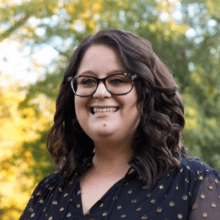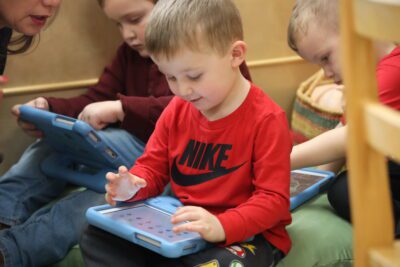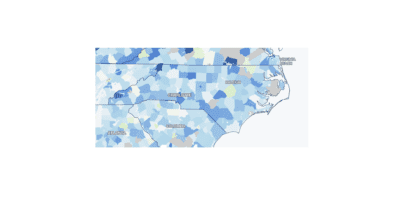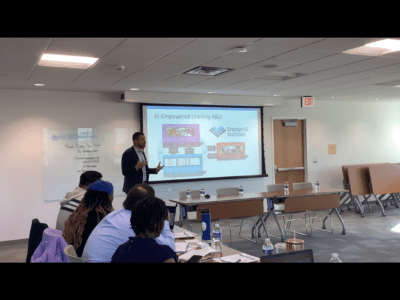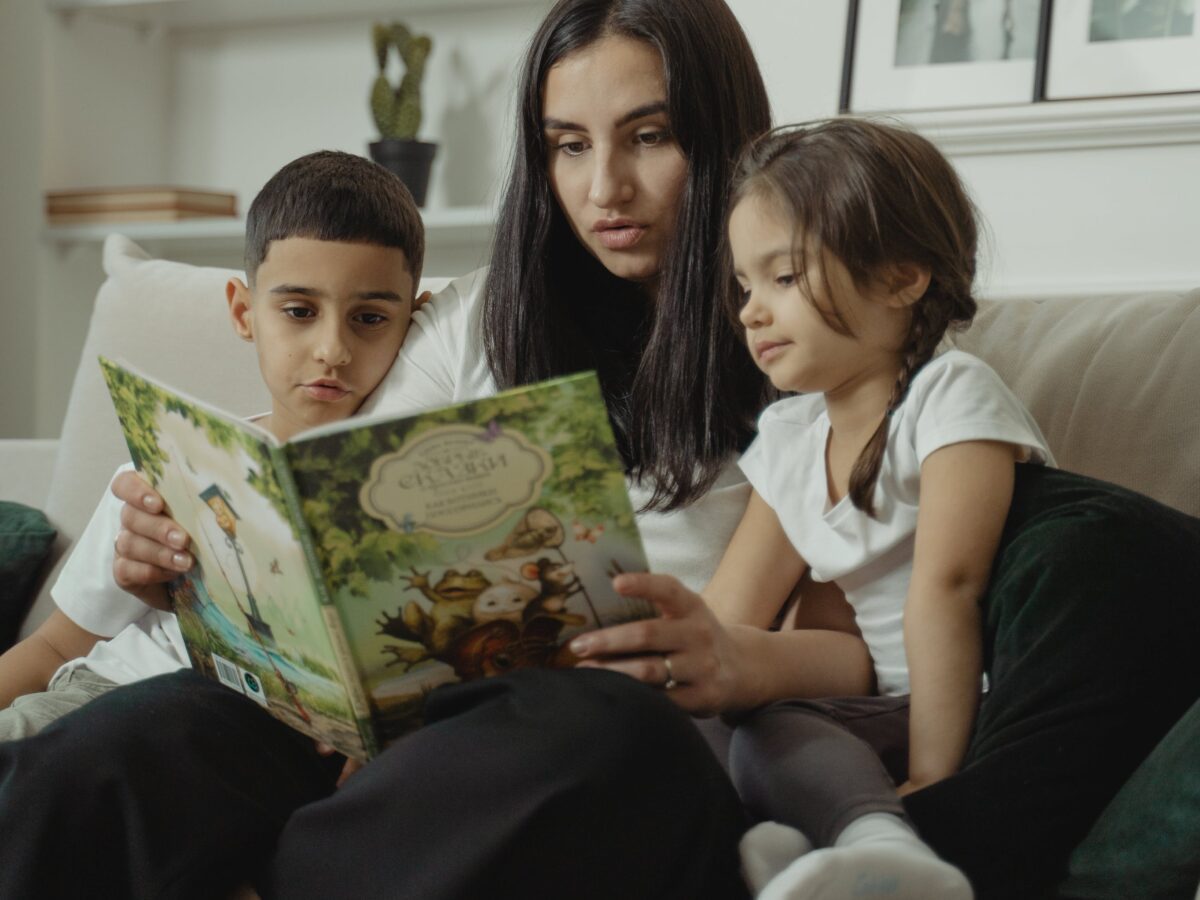
Two years ago, North Carolina took a huge step in transforming literacy education in the state with the implementation of LETRS training — an extensive professional development program informed by the “science of reading.”
Two years later, the data is powerful as it reflects true advances across the state.
But perhaps the most compelling evidence of this success isn’t the data, but rather the real-life stories, as told by their parents, of students overcoming literacy hurdles, thriving, and becoming eager readers thanks to the shift in instruction over the past two years.
Amy Stokes, Davie County Schools parent
As my second child entered kindergarten, I was filled with excitement for a great year. After preschool, she entered kindergarten already recognizing letters and sounds. My daughter had been read to since she was born. She was naturally motivated to learn and was always curious about how things worked. I felt confident that she would become an early reader just like my son had during his kindergarten experience.
After school, I would pull out the same early reader books I read with him. I quickly came to realize that reading books with predictable language patterns and high frequency words were not motivating her to learn to read or helpung her learn to read. She became frustrated easily while trying to read.
Shortly after the beginning of her school experience, her teachers began learning about the science of reading and learned how the brain actually learns to read. Instead of sending home note cards with words she was to “look at and memorize,” the teachers began teaching her to blend words with common patterns and sounds. She read books that focused on a phonics pattern.
Her motivation to read the phonics books was astounding. Finally, learning to read made sense to her! Today, she is thriving in school. She loves to read and is motivated to continue learning. Without the science of reading initiative, her school experience would have been very different.
Hannah Gray, Cumberland County Schools parent
As a parent of a second grader, I have seen first-hand the difference the use of teaching strategies aligned with the science of reading has had on my daughter. There has been an emphasis on building her foundational reading skills while also building her comprehension skills. This dual approach to reading has helped my daughter become an avid reader, already reading above grade level.
Leah’s first-grade teacher used many strategies she learned from LETRS in her classroom. Students were given opportunities to build upon their strengths, which led to a lot of growth in our students. Leah personally grew well over 100 points in mClass last school year, going from borderline green/yellow to well above the blue cutoff by the end of the year.
All of this led to a love of reading for Leah. She enjoys reading more complex texts now and is able to comprehend what she is reading. I have seen the shift in my daughter from learning to read to reading to learn. I am grateful that her teachers have access to high-quality professional development so that she is given what she needs to ensure she is prepared for the future with a sound foundation of reading.
Rebekah Swain, Tyrrell County Schools parent
As a parent, the science of reading has helped my child tremendously. My child is currently in third grade, meaning he began his elementary school career during COVID.
His teachers were amazing, but due to the impact of virtual learning, he still struggled with reading. During his second-grade year, the school began their work with LETRS, which was a game-changer for my child. His teacher began giving him strategies to decode words and multisyllabic words, and he was given interventions as part of his Individual Reading Plan. My child went from struggling to sound out every single word, to reading short sentence fragments, to reading full sentences fluently.
The strategies learned from the science of reading have given my child a great confidence in reading and have helped him to become a better and more fluent reader. This has helped him at home and has eased his frustration with reading.
Last year his teachers learned how to help him phonetically and ensure he understood how to sound out all parts of the words prior to trying to read something. In addition to sounding out words, his vocabulary has greatly improved, as well as his auditory comprehension of verbal vocabulary.
Katie Dowdle, McDowell County Schools parent
I am a mother of three children, ages 13, 12, and 9. Two of my three children have been tested and have IEPs for specific learning disabilities in reading. Dyslexia is a learning disability that I know all too well, as I too grew up as a struggling reader and was later diagnosed with dyslexia.
As a teacher and mother, I have seen the importance of structured literacy in our classrooms. My youngest son is still struggling with sounds and reading in the fourth grade, but with the literacy programs we have in place in McDowell County, I have seen his ability to compensate where his brain struggles.
We use Orton-Gillingham and Heggerty in our classrooms to make sure that phonics is systematically being taught so that the students understand the “how” and “why” when learning to read.
The science of reading tells us that phonics instruction is important, especially for our struggling readers to learn skills to decode and encode words. My son is one of those struggling readers, and I love that even though he may have seen the same word multiple times, he knows the skills to decode a word to figure it out. Dyslexia is not something that is curable, but learning skills to figure out life with dyslexia will help him for rest of his life.
Foundational literacy skills are important in the classroom, and the science of reading provides us with information that we need to teach phonics to help students be successful no matter their levels. Explicitly teaching phonics has taught me as a teacher that if students truly know how the alphabet works, they can gain a lifelong knowledge to become a good reader at any level.
Transforming literacy
Improving literacy outcomes for the state’s youngest learners is not only crucial for success throughout their K-12 education, but also lays the appropriate foundation for their success beyond graduation.
Through LETRS training and the science of reading, North Carolina’s educators have been provided the tools necessary to transform literacy education and instill a love of reading in their students — ensuring a brighter future for our state’s youngest learners.


